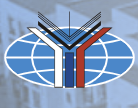Introduction
MGIMO University, the Moscow State Institute of International Relations, is a prestigious higher education institution in Russia. It is regarded as a cradle for training diplomats and international affairs experts. It is famous for its high-quality education and in-depth research in the fields of international relations, politics, economics, law, etc.
Overview
Student size: The college has students from all over the world. The total number of students is large, but the specific number has not been clearly found. However, judging from the large number of international students it recruits each year and the many different professional courses, the scale is considerable.
Faculty: There are more than 150 professors and doctors, more than 400 associate professors, more than 300 senior lecturers and nearly 400 high-level teachers. More than 20 of them are full members and corresponding members of the Russian Academy of Sciences, Russian and international professional academies of science, and 17 have been awarded the title of Russian Meritorious Scientist.
History and Establishment
MGIMO University was established on October 14, 1944. Its history can be traced back to 1934, when Stalin ordered the establishment of a diplomatic talent training institution. Later, it developed into the current Moscow State Institute of International Relations on this basis. The school was established on the basis of the newly established Moscow State University Institute of International Relations. The first 200 students were veterans who participated in World War II.
School Strength
Teaching Quality: It provides educational courses in 18 research fields, including international relations and regional studies, politics, governance, diplomacy, world economy, law, journalism, foreign trade and management, energy affairs, linguistics and environmental studies, etc. The curriculum is comprehensive and keeps up with the international situation and the forefront of professional development. The teaching method focuses on combining theory with practice. For example, law students have a special "internship base" where they can participate in practical operations. They also attach great importance to distance learning and digital technology. Since 2016, they have been recording and publishing their distance courses on Coursera.
Scientific research results: As a think tank for international affairs, the college has carried out in-depth research in many fields such as international relations theory, international political economy, and international law, with fruitful results. It often undertakes research projects for governments and multinational companies, plays an important role in Russia's foreign policy and diplomatic relations, and its research results also have a certain influence in the international academic community.
International exchanges: It has established cooperative relations with more than 300 universities and research institutions around the world, and maintains close ties with many international organizations such as the European Union, the United Nations, the World Trade Organization, and the Asia-Pacific Economic Cooperation Organization. The college is highly internationalized, with students from all over the world and from different cultural backgrounds exchanging and studying here to broaden their international horizons.
Nature of the college
A public higher education institution, managed by the Russian Ministry of Foreign Affairs.
Educational philosophy
Committed to cultivating high-quality talents with global vision, professionalism, innovative spirit and social responsibility, focusing on cultivating students' international affairs handling ability, cross-cultural communication ability and comprehensive problem analysis ability, so that students can be competent in diplomacy, international organizations, multinational companies and other fields in a complex and changing international environment, and contribute to the development of the international community.
Key laboratories and disciplines
Key laboratories: Although no key laboratories with specific names have been clearly found, judging from their scientific research results and various research projects undertaken, the college should have professional laboratories in the fields of international relations, international economy, international law, etc. Research centers and laboratories and other scientific research platforms to support teaching and scientific research.
Key disciplines: International relations, diplomacy, international economics and trade, international law, political science, journalism, linguistics and other disciplines are the key disciplines of the school, and have achieved remarkable results in teaching and scientific research. Among them, international affairs, diplomacy, economics and other directions have an international reputation.
Department
The college consists of ten colleges including the School of International Relations, the School of International Law, the School of International Economic Relations, the School of International Business Administration, the School of Applied Economics and Business, the School of Governance and Politics, the School of Government and International Affairs, the School of International Journalism, the Preparatory Training School, the School of Finance and Economics, the School of Languages and Cross-Cultural Communication, as well as three research institutes including the Institute of International Energy Policy and Diplomacy, the Institute of Europe, and the Institute of Governance and Global Affairs, and a business school.
Ranking
QS World University Rankings: Ranked 345th in 2022.
Global Think Tank Index Report: Ranked 8th in the world in the Best University-affiliated Think Tank Index in January 2021, and 73rd in the Best Management Think Tank.
Expenses
Tuition: Preparatory tuition is about US$5,000/school year, and tuition fees for undergraduate and master's programs vary, roughly about RMB 50,000-60,000/school year.
Accommodation: School dormitory 500-800 yuan/month.
Living expenses: about RMB 3,000/month.
Campus
Teaching facilities: The college is located at 76 Vernadsky Street, Moscow. No. 1, with modern teaching facilities, such as classrooms equipped with advanced equipment, professional language laboratories, and libraries with rich collections of books, providing students with good learning conditions.
Campus environment: The campus has complete living facilities, dormitories have double or triple rooms, each floor has a bathroom and a kitchen equipped with an electric stove, all dormitories are equipped with fire safety systems, and there are also cafes, sports rooms, reading rooms and study rooms, etc. The dormitories are close to shops and convenient for living.
-

Peter the Great St.Petersburg Polytechnic University
-
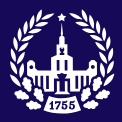
Moscow State University M. V. Lomonosov
-
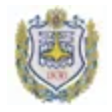
Bauman Moscow State Technical University
-
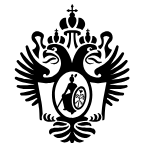
St. Petersburg State University
-
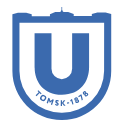
Tomsk State University
-
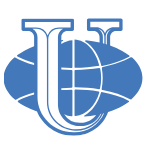
Peoples' Friendship University of Russia
-
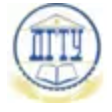
Don State Technical University
-
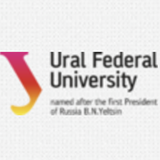
Ural Federal University
-

Moscow Institute of Physics and Technology
-
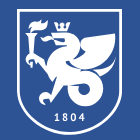
Kazan Federal University
-

Mesoamerican University
-

Istmo University
-

Mariano Galvez University of Guatemala
-

Regional University of Guatemala
-

Galileo University
-

Francisco Marroquín University
-

Rafael Landívar University
-

University of the Valley of Guatemala
-

University of San Carlos of Guatemala
-

Technological Institute of Tlaxcala Plateau
-

Golfo University
-

Technological University of South Sonora
-

Technological University of Huejotzingo
-

Tizimín Institute of Technology
-

Chilpancingo Institute of Technology

